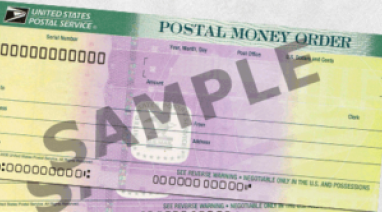
Gabapentin for Anxiety: How It Works and What You Should Know Before Taking It
| Gabapentin 100mg 180 tabs | COD / Free shipping | $149 | Order Now |
| Gabapentin 300mg 180 tabs | COD / Free shipping | $159 | Order Now |
| Gabapentin 400mg 180 tabs | COD / Free shipping | $169 | Order Now |
| Gabapentin 600mg 180 tabs | COD / Free shipping | $179 | Order Now |
| Gabapentin 800mg 120 tabs | COD / Free shipping | $165 | Order Now |
| Gabapentin 800mg 180 tabs | COD / Free shipping | $189 | Order Now |
Living with anxiety can feel like a constant tug-of-war between your mind and your body. The physical symptoms, racing heart, restlessness, and sleeplessness, can be just as overwhelming as the mental strain. While therapy, mindfulness, and lifestyle changes help many people manage symptoms, some require additional support. Choosing Gabapentin for anxiety is accurate if you are looking for a result-driven solution.
Before considering any new medication, it’s essential to understand how it works, what to expect, and how it may fit into your overall wellness plan. This guide breaks it all down clearly, no fluff, just facts.
Understanding Anxiety: More Than Just Worry
Anxiety isn’t simply about feeling nervous before a big event. It’s a chronic condition that can interfere with relationships, job performance, and quality of life. It stems from complex neurological imbalances, often involving overactivity in certain areas of the brain.
Traditional medications like SSRIs or benzodiazepines are typically prescribed, but not everyone responds well to these. That’s where Gabapentin for anxiety steps in as a potential alternative, especially for those who haven’t found relief with more common prescriptions.
Gabapentin: Originally for Seizures, Now for More
Gabapentin was initially developed to treat epilepsy. Its main task was to provide a tranquil sensation to the nervous system and reduce the likelihood of seizures. Over time, physicians noticed that patients taking Gabapentin also experienced fewer symptoms of anxiety, leading to its off-label use for conditions like generalized anxiety disorder (GAD), panic disorders, and even social anxiety.
So, how does Gabapentin work to reduce anxiety?
How Does Gabapentin Work in the Brain?
While Gabapentin is not classified as a benzodiazepine or an antidepressant, it influences brain chemistry in a unique way. It’s structurally similar to the neurotransmitter GABA (gamma-aminobutyric acid), which has a calming effect on the brain. However, Gabapentin doesn’t bind to GABA receptors immediately.
Instead, gabapentin functions by binding to a particular subunit of voltage-gated calcium networks in the brain. This binding reduces the release of excitatory neurotransmitters like glutamate. In simpler terms, it slows down excessive neural firing, helping to stabilize mood and decrease feelings of nervousness.
This modulation of neurological projection is what makes Gabapentin for anxiety an operable option. It doesn’t sedate you in the way some anxiety medications do, but it helps balance the brain’s response to stress.
Why People Turn to Gabapentin for Anxiety
Gabapentin is often considered when traditional medications fall short or when side effects become too difficult to manage. It’s known for being relatively well-tolerated and non-addictive, an important distinction compared to drugs like benzodiazepines.
Some of the reasons people choose Gabapentin for anxiety include:
- Lower risk of dependency
- Fewer sexual side effects than SSRIs
- Heals symptoms of mental and physical anxiety
- Can improve sleep quality
- Useful for people with coexisting pain or neurological conditions
Possible Side Effects to Watch For
While many tolerate Gabapentin well, it’s still important to understand the risks. Some common side effects include:
- Drowsiness or fatigue
- Dizziness
- Weight gain
- Memory issues
- Dry mouth
More serious side effects are scarce but may include changes in mood, allergic reactions, or even difficulty in breathing. That’s why you should always start Gabapentin under the guidance of a healthcare provider.
Dosage and Usage: What to Expect
Depending on particular patients or individuals, the gabapentin dosage for anxiety varies. Most doctors start patients on a low dose, typically 100 to 300 mg per day, and adjust gradually based on tolerance and effectiveness.
Gabapentin is usually taken two to three times a day. It’s crucial to follow a consistent schedule and not abruptly stop taking it, as doing so can lead to withdrawal symptoms or a rebound of anxiety.
Combining Gabapentin with Therapy or Lifestyle Changes
Medication alone is rarely a complete solution. Many people find that Gabapentin for anxiety works best when combined with cognitive behavioral therapy (CBT), exercise, meditation, and proper nutrition.
Gabapentin can give your brain the breathing room it needs, allowing you to better engage in these practices and see real improvement over time.
Who Should Avoid Gabapentin?
Gabapentin may not be suitable for:
- Individuals with kidney disease (it’s eliminated through the kidneys).
- Pregnant or breastfeeding individuals (safety data is limited).
- Those taking CNS depressants like opioids or alcohol regularly.
Always disclose your full medical history to your healthcare provider before starting any new treatment.
How to Talk to Your Doctor About Gabapentin
If you’re curious about trying Gabapentin for anxiety, prepare to have an informed conversation with your doctor. Here are some points to consider:
- Describe your current symptoms and any treatments you’ve tried
- Discuss your goals, whether it’s improved sleep, reduced worry, or better concentration.
- Ask about potential interactions with other medications you’re taking.
- Clarify the expected timeline for benefits and any red flags to monitor.
Remember: You have the right to understand your treatment plan and make decisions that align with your needs and values.
Final Thoughts: Is Gabapentin Right for You?
Gabapentin for anxiety isn’t a miracle drug, but it offers a valuable option for those who haven’t found relief through traditional routes. By calming overactive nerve signals, it provides a sense of balance that can make a meaningful difference in daily life.
Whether you’re navigating mild anxiety or something more persistent, Gabapentin might be the support your system needs. As with any treatment, the key lies in a thoughtful and personalized approach that considers both the science and your personal experience.
If you’re ready to explore your options or want to learn more about how Gabapentin works, consult with a licensed medical professional.
And when you’re ready to take the next step, you can count on Buy Gabapentin Pill for access to reliable, quality medications. Start your journey to better mental health with confidence.
FAQs
Q: Can I take gabapentin every day for anxiety?
Yes, Gabapentin is typically taken daily, and consistency is key. Your doctor will guide you on the best dosage and schedule for you.
Q: How long does gabapentin take to work for anxiety?
It may take a few days to a couple of weeks to notice a difference, depending on the dose and individual response.
Q: Is gabapentin addictive?
Gabapentin is not considered addictive in the traditional sense, but abrupt discontinuation can lead to withdrawal symptoms. Always follow your doctor’s instructions when stopping or adjusting the dose.
Q: Can I drink alcohol while taking gabapentin?
It’s best to avoid alcohol while on Gabapentin, as both can depress the central nervous system and increase side effects like drowsiness or dizziness.
Q: Does gabapentin help with sleep issues related to anxiety?
Yes, many users report improved sleep when taking Gabapentin, particularly if their anxiety disrupts rest.


